Lawyers for Apple and Epic Games debated about market definition and potential remedies on the last day of the Epic Games v. Apple trial, capping off three weeks of testimony and arguments in court.
In lieu of traditional extended closing arguments, the last day of the trial was marked by a session of questioning from Judge Yvonne Gonzalez Rogers and a back-and-forth debate between Apple and Epic Games lawyers. At the start of the questioning, Judge Gonzalez Rogers asked each side what their top two issues were. Both agreed on market definition and potential remedies, or what changes Apple could make if it was found to be violating antitrust regulations.
Market definition
Epic Games lawyer Gary Bornstein kicked off the day by stating that Tim Cook's testimony on Friday confirms that Apple does compete with Google in the operating system market. That shows that developers write for both platforms because consumers choose one and rarely switch.
Apple's lawyers resisted this definition, stating that operating system competition is a "distraction." Apple lawyer (tk) Swanson reiterated that there is no foremarket, and although the term "duopoly" is thrown around, Apple faces competition from companies like Samsung, LG, and Huawei.
Swanson continued to hammer that "this is a digital game transaction market, defined by substitution with options for both consumers and developers." He argued that if Apple is a monopolist in this market, so is Google and every console maker.
Epic's lawyer countered by maintaining the "Fortnite" maker's definition of the market at hand: app distribution. Epic reiterated that its market distribution doesn't include any substitutes, but that potential remedies like sideloading and third-party app stores could increase competition.
Judge Gonzalez Rogers said one issue with Epic's formulation is that it "seems to ignore the reality that customers choose an ecosystem." Apple's strategy is to create an attractive ecosystem for consumers. Epic's substitutes would destroy that ecosystem, the judge said.
Part of Apple's key arguments included the fact that evidence shows iPhone owners also have other devices they could use to play "Fortnite," including tablets, consoles, and computers.
Gonzalez Rogers brought up Apple's 30% commission and the fact that it hasn't moved since its inception. She implied that if there were real competition, it would have.
Apple countered by claiming that its cut of app and in-app purchases is lower than retail commissions. The price also didn't go up at all when Epic Games claimed Apple became a monopoly in 2010. Swanson said that 80% of the revenue that came from "Fortnite" players on iOS actually originated from other platforms.
"We have an enormously well-resourced company that would like to pay less," Swanson said, adding that this doesn't mean there isn't real competition.
Epic's lawyer argued that the company's problem wasn't with the iPhone or the "real innovation" that has been made on the device. Instead, the "Fortnite" maker's issue is with the alleged monopoly on app distribution.
Judge Gonzalez Rogers also suggested that there might be a legal precedent in California that companies could violate the "spirit" of antitrust regulations without a strict monopoly definition under federal statures. That could lead to an outcome where Apple has to change its behavior only in California, she said.
Apple argued that it was Epic Games' burden to define a market, and they failed to do so. Judge Gonzalez Rogers also suggested that Epic's arguments ignore the fact that many apps are free and don't have to pay any sort of commission on app and in-app purchases.
Epic Games tried to counter that argument by claiming developers are unhappy with search and discovery methods on the App Store. Judge Gonzalez Rogers says it isn't a reasonable complaint to be upset that an app isn't at the top of a list in a category with a 100,000 competitors.
At the end of the market definition section of the debate Monday, Epic Games again tried to bring up the allegedly high profit margins that the App Store has. Epic's lawyers said "the numbers don't lie," even though Apple doesn't track App Store profitability.
Judge Gonzalez Rogers was skeptical, pointing out that even Epic Games doesn't break down profits in an itemized manner.
Apple's lawyers, for their part, also countered Epic's margin argument. "If those numbers mean what Epic says they do, Tim Cook should sell the device business and double down on the App Store," they said.
Company conduct
During a portion of the questioning focused on company conduct, Apple lawyer Veronica Moye tried to counter a report that indicated developers were unsatisfied with the App Store.
Moye showed off a survey that reported 64% satisfaction rating among developers. She also highlighted all of the time that Apple discounted its commission, including the Video Partner Program and the Small Business Program.
"Even if the Small Business Program was introduced because of litigation, it's still pro-competitive," Moye said.
"Does that mean we have to wait for people to sue Apple?" Judge Gonzalez Rogers responded. "How can you reasonably say that should be a competitive driver."
Epic's lawyers tried to argue that developer satisfaction ratings are tied to Apple's APIs, and not the App Store, leading to skewed results. Epic also argued that higher prices and lower innovation are its direct arguments that Apple is being anticompetitive in the App Store.
Moye countered on the first point, claiming that Apple's developer tools are provided to app makers so they can create apps for the App Store. She said Apple invests many resources into developing them.
She also reiterated that Apple's customers purchase iOS devices because of "Apple's long-standing brand promise" of privacy and security. If customers want an alternative, they should opt for an Android device, Moye added.
The Apple lawyer also criticized Epic's "desperate attempt" to "scrounge up" witnesses unsatisfied with Apple's conduct. The judge suggested that may not be a completely fair assessment, since apps like Down Dog and Match Group had prepared testimonies at the start of the trial.
Anti-steering provisions
The questioning then moved onto anti-steering provisions, or the regulations that ban App Store developers from advertising outside services within apps.
Judge Gonzalez Rogers suggested that Apple's "hiding" of alternative payment options could be anticompetitive, even in light of the American Express precedent that found them to be legal.
Moye said that there's nothing "unique or unusual" about anti-steering provisions. She compared a banner advertising outside prices to a sign at Nordstrom telling customers to shop at Macy's.
Judge Gonzalez Rogers offered an alternate solution: signs indicating customers can check out at Nordstrom using various payment methods like Visa or MasterCard. She suggested that App Store payment processing could be something like that.
Apple also argued that developers are free to email customers with promotions, but noted that its guidelines prohibit specific targeting of customers. Moye pointed out that Epic Games didn't raise a legal claim that it had been harmed as a result of anti-steering provisions.
Moye also said that the anti-steering provisions are proof that Apple does have competitive because it's trying to stop developers from referring their users to those alternate platforms.
Remedies
On the subject of remedies, Epic's lawyers said that they want Apple to nix specific anti-competitive restrictions, including restrictions on app distributions and in-app payments.
"The effect of both of these is that Epic Games would pay Apple nothing," Judge Gonzalez Rogers said of Epic's remedies.
Epic's lawyers countered by claiming that Apple could charge businesses differently, just not in these allegedly anticompetitive ways.
Apple lawyer Richard Doren called the remedies "a compulsory license of all Apple's intellectual property." Under the model, Doren said, Apple wouldn't receive any payment for the use of its IP or its platform.
Additionally, Doren said that the remedies would stop Apple from reviewing apps in third-party app stores. Even if it could review third-party app stores, it would be doing so for free, Doren said.
Doren said that Apple's business model was pro-competitive. Epic's lawyers countered by claiming that Apple just wants to license its IP without any concern for competitive consequences. Judge Gonzalez Rogers disagreed with Epic's characterization of Doren's comments.
At one point, Gonzalez Rogers also pointed out the fact that that Epic Games also sued Google. Google's Android platform allows multiple app stores. The judge questioned how opening up iOS would solve Epic's problems with Apple.
Additionally, she also brought up the fact that Epic Games may or may not have "ulterior motives" that hasn't been discussed in court yet.
"Be clear, right? Epic is here because if relief is granted, they go from a multibillion dollar company to a maybe-trillion dollar company. Who knows," Judge Gonzalez Rogers said. "But they don't do it out of the kindness of their heart."
Doren also reiterated Apple's arguments that Epic's remedies would destroy the company. Although the judge said that Android functions and is popular with a similar lack of restrictions, Doren said that Epic wants to turn iOS into a "poor imitation" of the competing operating system.
In closing remarks, Epic's lawyers said that Apple clearly has options to feasibly open up iOS. The lawyer also claimed that Apple is simply scaring the court into believing nothing can be done.
Doren said Epic is making stuff up about how reasonable it would be to manage the App Store with Epic's proposed remedies.
Capping off a three-week trial
The closing arguments bring to an end a three-week trial that puts the future of Apple's management of iOS apps and the App Store at stake. Depending on the court's decision, the outcome could see Apple lose not only billions of dollars in potential revenue, but also control over the ecosystem it created.
Epic used its time in court to frame Apple as holding a monopoly over iOS app distribution and App Store payments, framing its argument as being one that could be beneficial to all developers. Apple's 30% App Store fee was also a major bugbear to the "Fortnite" developer.
Apple's counter-arguments emphasized the privacy and security of its platforms and policies, as well as attacking Epic Games' motives for the lawsuit itself. The game developer was painted as an opportunist that didn't want to pay Apple for using its platform, and one that also wanted to sell apps itself on iOS away from the App Store entirely.
During the trial, it was discovered Apple's leadership had previously considered cutting how much it took from App Store transactions. Apple also insisted the Small Business Program was originally considered in 2016, but it was raised in court its introduction in 2020 may not necessarily have anything to do with COVID-19 concerns.
The processes behind App Store Review were explored in detail, ranging from emails about scam apps from 2012, to rare lapses in the usually rigorous process, and even a photo of a human review station. While Apple rejects around 40% of app submissions, Apple said that less than 1% of rejections were actually appealed.
Expert witnesses for Epic attacked the App Store's anti-steering provisions and iOS security, including insisting that iOS could be like macOS to offer a third-party app marketplace without any big security drawbacks. This led to Craig Federighi explaining to the court that multiple app stores are "regularly exploited on the Mac," and that there's a "level of malware on the Mac that we don't find acceptable."
Towards the end of the trial, Apple CEO Tim Cook himself took to the stand to bolster Apple's argument, reiterating that safety, privacy, and security were key components of Apple's strategies. Cook insisted that Apple wasn't a dominant player in the smartphone industry, and that the antitrust scrutiny wasn't the main driver for the small business program.
The Apple chief offered that Epic's proposed side-loading and third-party app stores measures would be a disaster for iPhone, and it wouldn't take long for the ecosystem to become a "toxic mess." Third-party payment mechanisms would be bad to consumers, Cook reckoned, with fraud concerns and the need for Apple to create a new way to gain its commission.
Cook was also the target of extra scrutiny from Judge Yvonne Gonzalez Rogers, who questioned the CEO directly for nearly 10 minutes. Judge Rogers expressed skepticism about Apple's business model, including how it seemed that game transactions were effectively subsidizing the rest of the App Store catalog.
With the end of closing arguments, it's now a case of waiting for the court to offer its ruling on the affair, followed by the inevitable appeals.
Stay on top of all Apple news right from your HomePod. Say, "Hey, Siri, play AppleInsider," and you'll get latest AppleInsider Podcast. Or ask your HomePod mini for "AppleInsider Daily" instead and you'll hear a fast update direct from our news team. And, if you're interested in Apple-centric home automation, say "Hey, Siri, play HomeKit Insider," and you'll be listening to our newest specialized podcast in moments.
 Mike Peterson
Mike Peterson

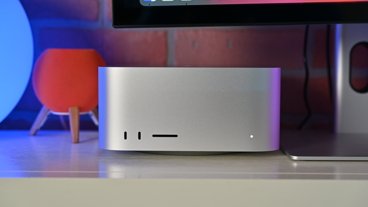





-m.jpg)






 Amber Neely
Amber Neely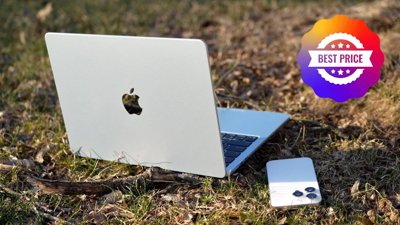
 Christine McKee
Christine McKee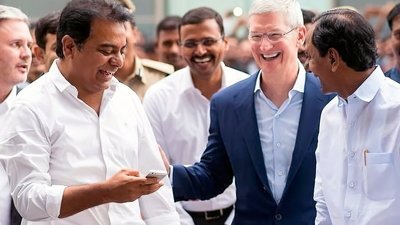
 Malcolm Owen
Malcolm Owen
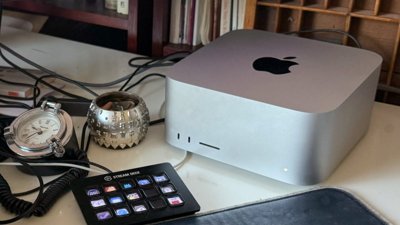
 William Gallagher
William Gallagher
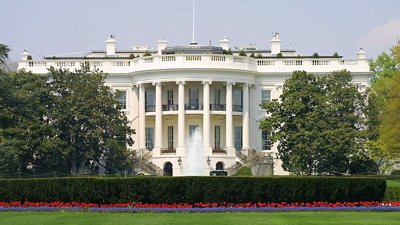






-m.jpg)




23 Comments
A few days ago people were lambasting the judge for asking hostile questions to Tim Cook, concluding she was an idiot. I warned people don't read too much into that. Today she asked Epic some equally hostile questions. So you see, hostile questions from a judge aren't a good indicator of which way she will rule.
I don't know what the result will be and I honestly don't care about mega companies like Apple and Epic losing some money, but Epic really doesn't deserve to win here and this would be bad long-term for consumers if Epic does win.
I hope some savvy dev out there writes a program to bypass Epic’s gate keeping and then sue the Frakkers for having a monopoly in Fortnite.
Apple is going to win this case as Epic's case was not a good one and I think that is hinted at strongly by the questioning. I do think as a result of what was exposed in this trial that if not now there will be government intervention to address the anti-steering rules and possibly the lack of competition on payment options.
Best case for everyone (including Apple in the long run as it would make the platform better) is if 3rd party payment processing was allowed and the anti-steering provisions Apple engages in removed for digital content. I would have no problem if they kept things as-is for games. There is no justification for Apple getting 30% for non app related products and services where they are providing nothing but the forced payment processing. If that went away the Apple platform would be greatly improved for consumers. Consumers wouldn't be paying 30% more for services like Spotify subscriptions and the awful user experience of downloading an app like Netflix and app makers being banned from being transparent with users would be fixed. Apps that cannot offer any product where the industry is on the agency model (comics, ebooks, etc...) would finally be available to purchase on iOS. If Apple was forced to compete for payment processing and as a result were only making as much as say Stripe was instead of 30% that would surely be a short term hit but all the additional commerce they would earn by digital content that can't be sold on iOS today would make up a good chunk of that.